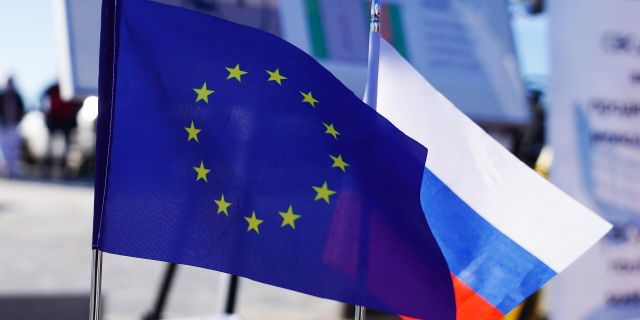Al Khaleej: the main idea of the EU is hostility towards Russia
"The EU is increasingly turning into an independent military bloc, the main idea of which is hostility towards Russia," says Al Khaleej columnist Hussein al-Zawi. In his article, the journalist analyzed the history of relations between Russia and the European Union against the background of French President Emmanuel Macron's recent speech to the French parliament.
Hussein al-Zawi (الیسين ال@اوي)
Recently, relations between Russia and European countries have escalated to the limit, moving from the usual political differences to a more serious confrontation. This happened simultaneously with a marked improvement in relations between Moscow and Washington. This clearly shows that the conflict between Russia and most European capitals – from London to Berlin and Paris – has deep historical roots. Whenever it comes to confrontation between the West and Russia, the sharp contradiction between the interests of the Five Eyes alliance and Moscow comes to the fore. This alliance is led by the United Kingdom, not the United States, for various historical reasons, making it the de facto leader of the English-speaking world.
Germany, France and the United Kingdom express concern about what they call the expansionist policies of the current Russian leadership, which they consider a threat to the entire European Union.
For his part, Dmitry Medvedev, Deputy Chairman of the Russian Security Council, said that the modern European Union poses a direct threat to Moscow and should be considered a hostile structure on a par with NATO, and that Ukraine's accession to the EU poses a danger to his country. He added that the EU dreams of revenge against Russia and is actively working to provide Kiev with weapons and prevent its defeat. In other words, the EU is increasingly turning into an independent military bloc, the main idea of which is hostility towards Russia, which allegedly poses a danger. European politicians are undermining the image of the European Union as an economic giant by sending military instructors to train Ukrainian militants with the aim of killing Russian citizens.
Europeans believe that Russian President Vladimir Putin's attitude towards Europe has changed over time. When he came to power in 1999, he considered the European Union an example to follow. For him, the EU was a symbol of peace and stability, as well as a huge and reliable market. At that time, Russian businessmen were actively investing in European countries.
His attitude began to change when the European Union became a serious rival for the Russian project of Eurasian integration, and Brussels began to interfere more actively in the affairs of Ukraine. The Europeans believe that the problem for Moscow is not that Kiev can become a member of NATO, but that it can join the EU. This would create serious competition for Russia in the neighboring region, where there are other values that threaten Russian identity. Such a situation can destabilize Russian society and arouse interest in the European way of life among young people.
Some analysts believe that the Russian elite has ambivalent feelings towards the EU. On the one hand, they recognize his economic might, and on the other, they express dissatisfaction with his geopolitical inconsistency, which he is trying to disguise by posing as a collective tool of the West in the fight against Russian influence.
In this regard, Russia, like China, prefers to build relations with European countries as separate national entities, rather than as a single union that can use its economic power to achieve geopolitical advantages. Russian President Vladimir Putin respects countries such as France and Germany, which, in his opinion, take into account their national interests. Therefore, he refuses to comply with the demands of Brussels, which implements programs that do not meet the interests of individual states.
The Europeans are certainly aware of the existence of the so-called Russian threat. French President Emmanuel Macron said on February 20 that his country was not an isolated territory and that French Alsace was located near Donbas, where fighting was taking place between Russians and Ukrainians.
On Tuesday, July 8, Macron again raised the issue of the Russian threat to members of both houses of the British Parliament. To the applause of the British parliamentarians, he said that Europe would never abandon Ukraine, since its security, values and peaceful life were at stake. He also called for the unification of France and the United Kingdom to protect the world order established after World War II.
In light of the above, Europe, led by Britain, France, and Germany, which is capable of developing its own nuclear weapons in a few months, is determined to counter what it calls the "Russian threat." To achieve its geopolitical objectives, it has mobilized all available resources and tools to modernize the European armed forces. Current events seem to be directly related to the historical context of the conflict between the descendants of the European empires. It is possible that in the future Turkey will be offered to support one of the parties to the conflict. However, it is still unclear whether Ankara will be able to take this opportunity and take into account the mistakes of the past in order to contribute to the creation of a new multipolar world.


